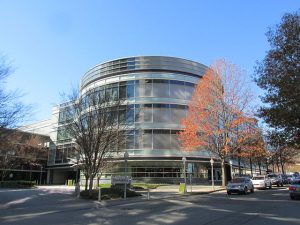Buckhead de-annexation selfish, harms Atlanta and schools
December 10, 2021
In every mayoral debate, one topic that has come up repeatedly is the discussion surrounding potential Buckhead de-annexation. De-annexation would result in Buckhead, Atlanta’s wealthiest neighborhood, leaving and forming its own city. However, this would harm the City of Atlanta and create logistical issues for both Buckhead and Atlanta.
First, Buckhead would deprive the city of a significant portion of its tax base. A study from Atlanta-based real estate consultants KB Advisory Group estimated that Atlanta would lose between $80 million and $116 million. While this would benefit Buckhead, less well-off areas of Atlanta that are more dependent on services and money from the city would be harmed by the loss of revenue.
Atlanta Public Schools, which currently services Buckhead through the North Atlanta cluster, could be hurt even more. The Georgia Constitution prevents local governments from creating their own school district. Buckhead students would have to attend Fulton County Schools if the city does not establish an agreement with APS. The separation could cause APS to lose $232 million, which would primarily come from lost property tax revenue. While wealthier Buckhead residents, who often send their children to private schools, would not be severely affected, the loss of revenue would take funding away from other APS schools, which need more resources than the North Atlanta cluster.
Additionally, separation would create logistical difficulties for APS, which would retain its properties in Buckhead despite them no longer being located in Atlanta. If secession occurs, students living in Buckhead would have to attend a Fulton County school. But students in the North Atlanta cluster who do not live in Buckhead would have to relocate to another APS cluster. This could lead to a ripple effect of redistricting that would affect the entire district. It would also place the staff of each North Atlanta Cluster school in a state of uncertainty, and it might not be possible for all of them to retain jobs in APS.
The separation of Buckhead, a predominantly white neighborhood, seems to be a form of white flight, a phenomenon that occurs when white people leave diverse areas. Atlanta has a long history of white flight. By leaving the City of Atlanta and attempting to place its own interest over Atlanta’s as a whole, Buckhead de-annexation represents a continuation of this trend, a modern form of segregation that places the interests of some over others.
However, Buckhead may not even get a significant benefit out of the move. The main goal of de-annexation is to create a police force to tackle rising crime in Buckhead, a symptom of a citywide increase in crime. There is no evidence that increasing the police force, a reactive solution, will actually decrease crime in Buckhead. According to the Atlanta Police Department, Zone 2, which includes Buckhead, already has the least overall crime though it does have an increased homicide rate. Instead, Atlanta must address the issues that cause people to turn to crime, something that would be much easier with the tax money from Buckhead.







